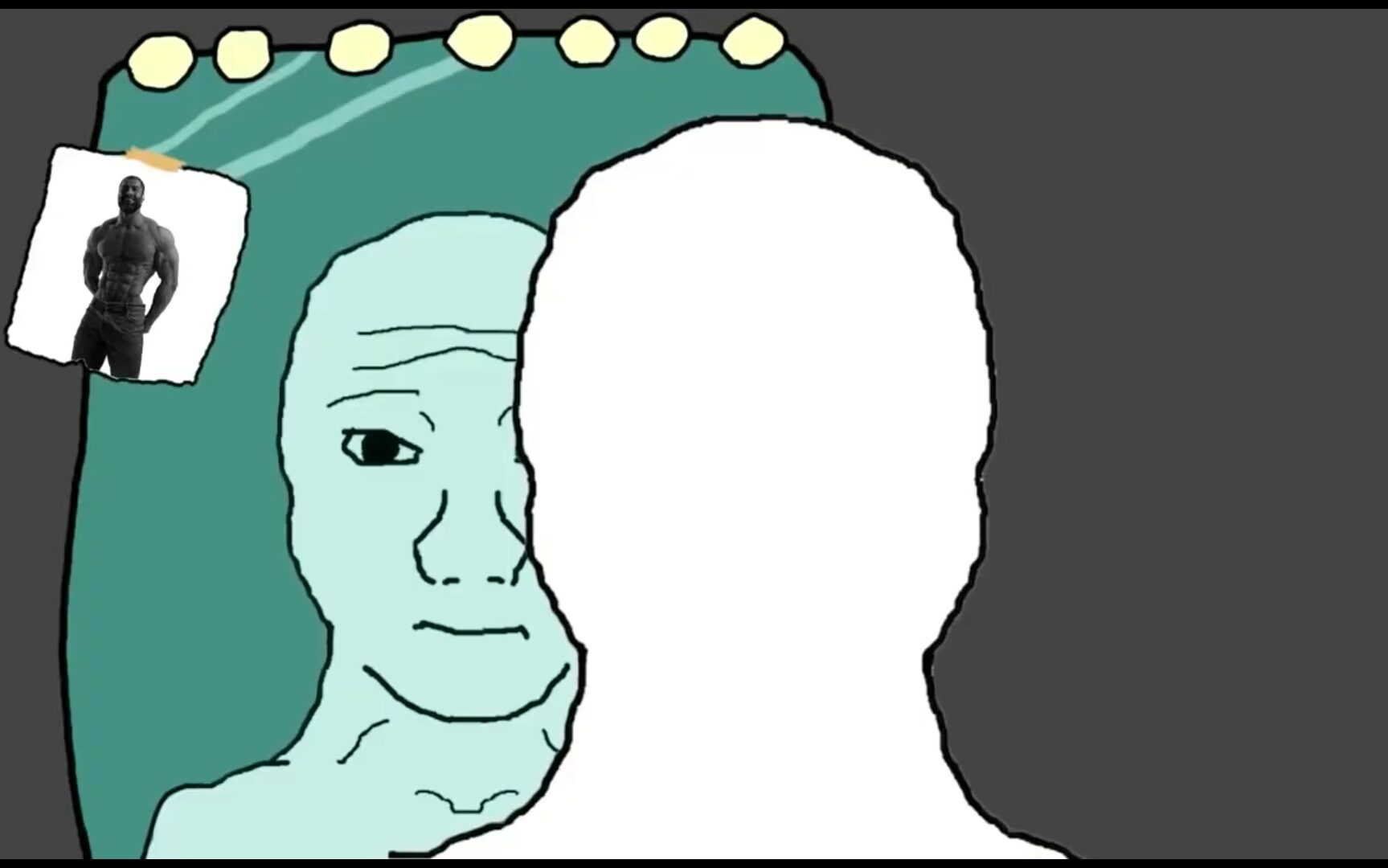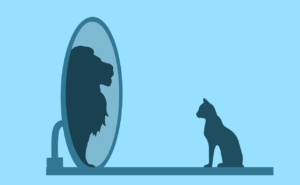Life can be tough, and it’s okay to feel down or stressed sometimes. But did you know that there are certain habits that could be secretly hurting your mental health?
These habits can sneak in without us even noticing, and they can have a big impact on our overall well-being.
In this article, we will explore five common daily habits that can seriously harm your mental health and well-being.
Understanding these habits and their effects on your mind is the first step towards making positive changes in your life.
These 5 Daily Habits That Could Be Silently Destroying Your Mental Well-Being:
- Negative Self-Talk
- Excessive Social Media Use
- Lack of Sleep
- Isolation and Loneliness
- Poor Nutrition and Sedentary Lifestyle
Let’s delve into each one and discover how you can replace them with healthier alternatives.
1. Negative Self-Talk

Talking to yourself in a mean way can make you feel bad about yourself.
For example, if you make a mistake, you might say to yourself, “I’m so stupid!” or “I’ll never be good enough.” This kind of negative self-talk can lead to low self-esteem, anxiety, and depression..
Negative Thoughts That Can Damage Your Mental Health:
- Belittling yourself for perceived flaws or failures.
- Constantly doubting your abilities and self-worth.
- Comparing yourself to others and feeling inadequate.
Identifying Negative Thoughts:
- Pay attention to recurring negative patterns in your thinking.
- Notice the triggers that lead to negative thoughts.
- Keep a journal to jot down negative self-talk instances.
Stopping Negative Thoughts from Spiraling Out of Control:
- Challenge negative thoughts by questioning their validity.
- Replace negative thoughts with positive affirmations.
- Practice mindfulness and focus on the present moment.
Benefits of a Positive Mindset:
- Improved self-confidence and resilience.
- Better coping mechanisms for life’s challenges.
- Enhanced overall mental well-being and happiness.
Changing Your Mindset to Be More Positive:
- Surround yourself with positive influences and supportive people.
- Celebrate your accomplishments and progress.
- Engage in activities that bring joy and fulfillment.
2. Excessive Social Media Use
Spending too much time on social media can make you feel like you’re not good enough.
This is because social media is often used to compare ourselves to others.
When we see people who seem to be more successful, beautiful, or happy than us, it can make us feel like we’re not good enough.
This can lead to feelings of inadequacy, anxiety, and depression.
How Much Social Media Use is Considered Excessive?
There is no one-size-fits-all answer, but if social media use interferes with daily life, it may be excessive.
Negative Effects of Excessive Social Media Use on Mental Health:
- Increased feelings of loneliness and isolation.
- Higher levels of anxiety and depression.
- Decreased self-esteem due to constant comparisons.
Reducing Social Media Use:
- Set specific time limits for social media browsing.
- Designate device-free zones or times during the day.
- Unfollow accounts that trigger negative emotions.
Healthy Alternatives to Social Media:
- Engage in hobbies and activities you enjoy.
- Spend quality time with friends and family.
- Read books or listen to podcasts for personal growth.
3. Lack of Sleep
Not getting enough sleep can make you feel tired, stressed, and irritable.
This is because sleep is essential for our physical and mental health.
When we don’t get enough sleep, our bodies and minds don’t have a chance to rest and repair themselves.
How Much Sleep Do You Need?
Most children and teenagers need around 8-10 hours of sleep per night.
Negative Effects of Lack of Sleep on Mental Health:
- Increased irritability and mood swings.
- Impaired focus, memory, and decision-making.
- Higher risk of anxiety and depression.
Improving Your Sleep Hygiene:
- Establish a consistent sleep schedule.
- Create a relaxing bedtime routine to unwind.
- Keep your sleeping environment comfortable and conducive to rest.
Healthy Sleep Habits:
- Avoid screen time before bedtime.
- Limit caffeine and heavy meals close to bedtime.
- Engage in calming activities like reading or meditation.
4. Isolation and Loneliness
Not having enough social interaction can make you feel sad, lonely, and depressed.
This is because social interaction is essential for our mental health. When we don’t have enough social interaction, we don’t get the emotional support and connection that we need.
This can lead to feelings of isolation, loneliness, and depression.
Signs of Social Isolation and Loneliness:
- Withdrawal from social activities and interactions.
- Feeling disconnected even in the presence of others.
- Persistent feelings of sadness or emptiness.
Negative Effects on Mental Health:
- Reduced sense of belonging and self-worth.
- Heightened feelings of despair and hopelessness.
- Impaired emotional regulation and coping skills.
Connecting with Others and Building Meaningful Relationships:
- Join clubs or groups with shared interests.
- Volunteer for a cause you care about.
- Reach out to friends or family members to reconnect.
Resources for Those Feeling Isolated or Lonely:
- Seek support from mental health professionals.
- Participate in online support communities.
- Contact helplines or crisis hotlines if needed.
5. Poor Nutrition and Sedentary Lifestyle
Eating unhealthy foods and not exercising can make you feel physically and mentally unhealthy.
This is because our bodies need a balance of nutrients to function properly. When we eat unhealthy foods, we’re not getting the nutrients that we need.
This can lead to a range of problems, including fatigue, weight gain, and increased risk of chronic diseases.
Additionally, not exercising can make us feel tired, sluggish, and stressed.
Negative Effects on Mental Health:
- Increased stress and anxiety levels.
- Reduced energy and motivation.
- Impaired cognitive function and focus.
Improving Your Diet and Exercise Habits:
- Plan balanced meals and snacks in advance.
- Stay hydrated by drinking enough water throughout the day.
- Incorporate regular physical activity into your routine.
Healthy Recipes and Exercise Routines:
- Try simple recipes with fresh ingredients.
- Engage in activities you enjoy, such as cycling, dancing, or hiking.
- Consider working out with friends or family for added motivation.
By recognizing and addressing these five daily habits that can harm your mental health, you can take significant steps towards improving your overall well-being and achieving a more positive and fulfilling life.
Remember, every small change you make in your habits can have a big impact on your mental health journey. Embrace positivity, prioritize self-care, and seek support when needed. Your mind deserves the best care, and you have the power to nurture it for a healthier and happier you.
FAQ:
Q: How do I stop negative self-talk?
A: Negative self-talk is a common habit that can have a negative impact on our mental health. Here are some tips on how to stop negative self-talk:
- Be aware of your negative thoughts. The first step to stopping negative self-talk is to become aware of your negative thoughts. Once you’re aware of them, you can start to challenge them.
- Challenge your negative thoughts. When you have a negative thought, ask yourself if it’s really true. Is there another way to look at the situation?
- Replace negative thoughts with positive ones. Once you’ve challenged your negative thoughts, replace them with positive ones. This can be difficult at first, but it gets easier with practice.
- Be kind to yourself. Talk to yourself in the same way you would talk to a friend. Be patient and understanding with yourself.
Q: How much social media is too much?
A: There is no one-size-fits-all answer to this question, as the amount of social media that is too much for one person may not be too much for another. However, there are some general guidelines that can help you determine if you are spending too much time on social media.
- If you find yourself checking social media first thing in the morning or last thing at night, or if you’re constantly checking it throughout the day, you may be spending too much time on it.
- If you find yourself feeling anxious or depressed after spending time on social media, or if you’re comparing yourself to others on social media, you may be spending too much time on it.
- If you’re finding it difficult to focus on other activities because you’re thinking about social media, or if you’re neglecting your relationships or work because of social media, you may be spending too much time on it.
Q: How much sleep do I need?
A: The amount of sleep that you need each night depends on your age and individual needs. However, most adults need between 7 and 8 hours of sleep per night. If you’re not getting enough sleep, you may experience symptoms such as fatigue, irritability, difficulty concentrating, and mood swings.
Q: How can I connect with others if I’m feeling isolated?
A: There are many ways to connect with others if you’re feeling isolated. You can reach out to friends and family, join a club or group, or volunteer in your community. You can also try online forums or social media groups. If you’re struggling to connect with others, it’s a good idea to talk to a therapist or counselor.
Q: How can I improve my diet if I’m not eating healthy?
A: There are many ways to improve your diet if you’re not eating healthy. You can start by making small changes, such as adding more fruits and vegetables to your diet or cutting back on processed foods. You can also try cooking more meals at home, so that you know exactly what’s going into your food. If you’re struggling to make healthy changes to your diet, it’s a good idea to talk to a registered dietitian.
Q: How can I be more physically active if I’m not exercising?
A: There are many ways to be more physically active if you’re not exercising. You can start by simply walking for 30 minutes most days of the week. You can also try swimming, biking, dancing, or any other activity that you enjoy. If you’re struggling to be more active, it’s a good idea to talk to a personal trainer.


